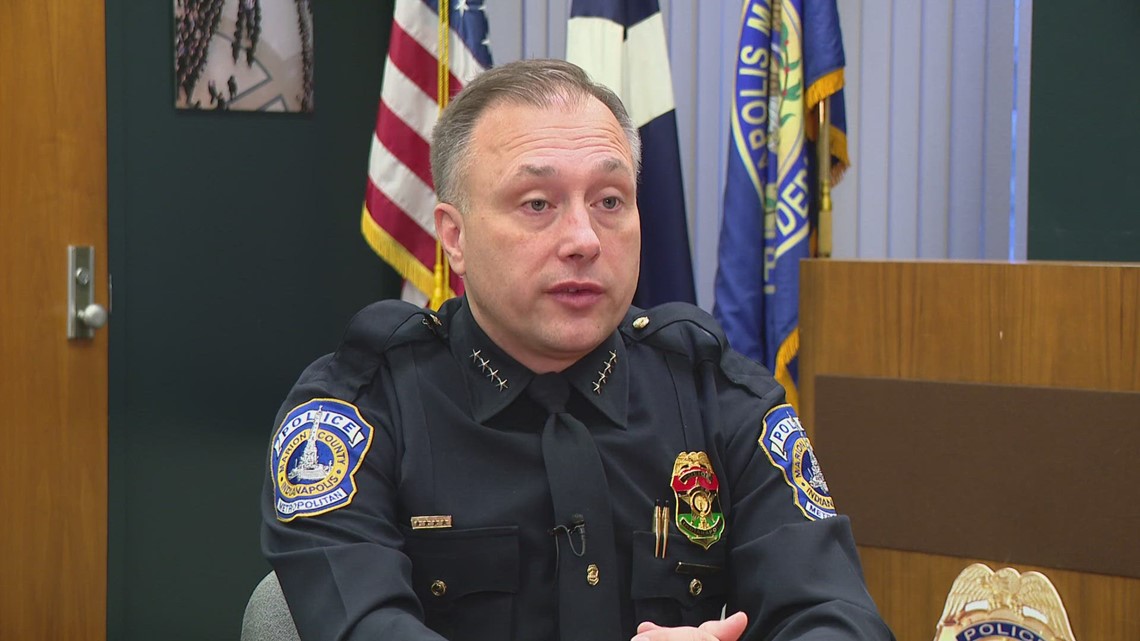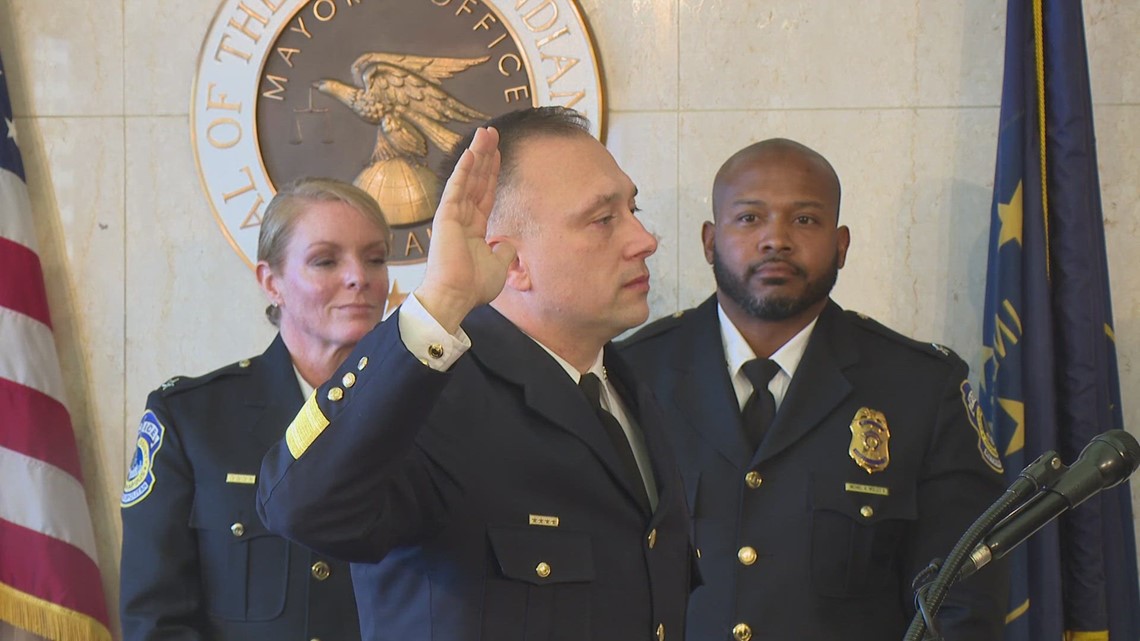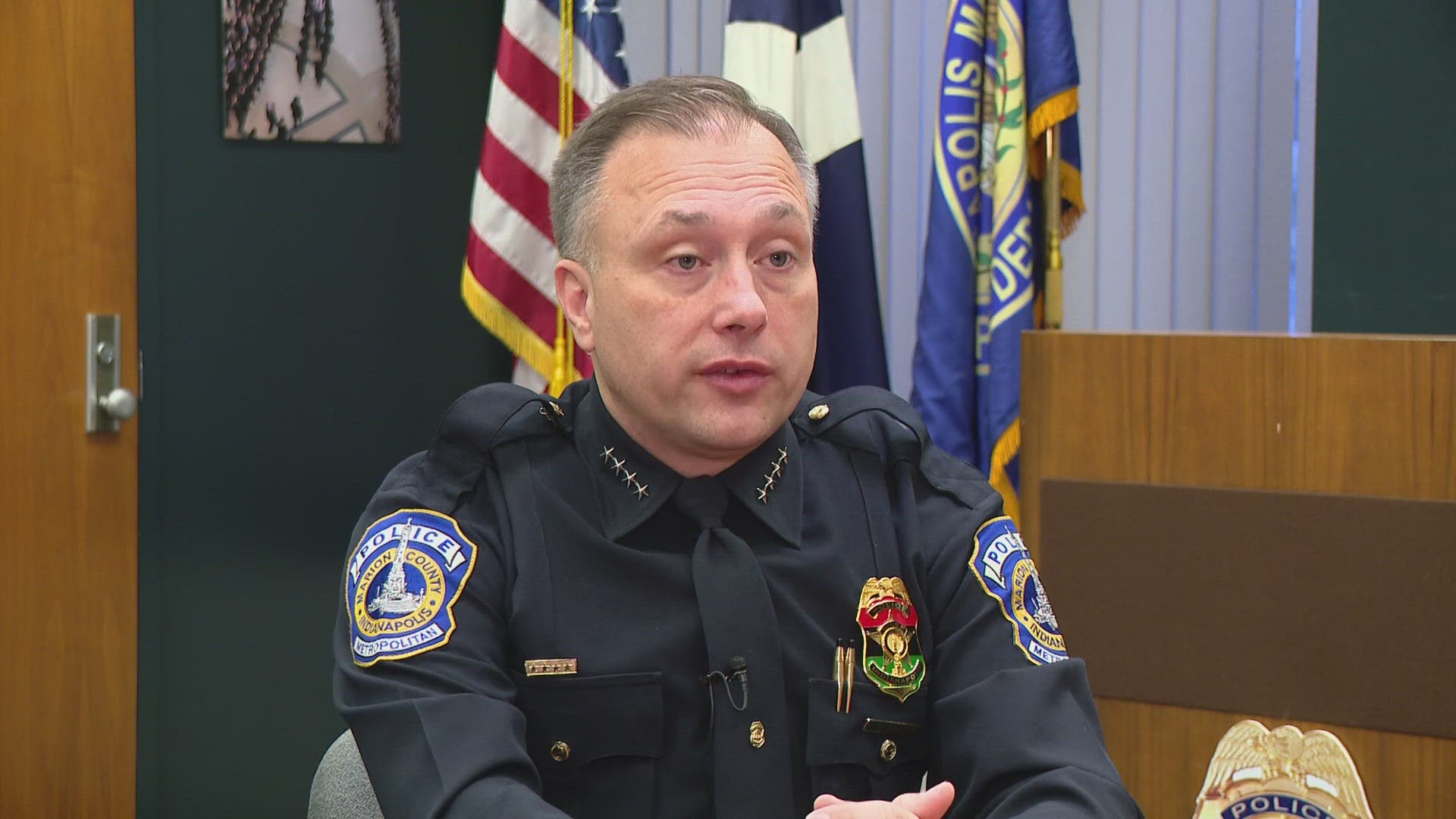INDIANAPOLIS — New Indianapolis Metropolitan Police Chief Chris Bailey is creating a new bureau and a position on his command staff to address the department's response to mental health calls.
Bailey believes the Operations Support Bureau will modernize operations in his department and better collaborate with mental health resources in the community.
"We need to be able to change with what our community expects, what our officers are experiencing,” Bailey said. "To see what we can do as a police department, but more so what we can do as a local government, to respond to people in crisis in a way that makes sure everyone is safe.”
Many, and perhaps a majority, of police runs today involve some kind of mental health component.


“What more can we do as a police department and what more can we try to offload of our officers?” Bailey said. “Our officers are dealing with a symptom of a much larger issue, and that's the lack of available, affordable services to people that are having substance abuse issues, that are having mental health issues."
Herman Whitfield III suffered a mental health crisis in his home in April 2022. He died in IMPD custody after being tasered twice and restrained on his stomach. Last August, Kendall Gilbert held a machete in front of his house for hours during a mental health crisis standoff with police before he allegedly rushed at officers and was shot and killed.
"Very few incidences, one or two, where things don't go as anybody wants, including the police, where someone loses their life or they're severely injured as a result of that,” Bailey said. “We don't want that to happen. And so, even though it happens very rarely and our officers do it right a majority of the time, we want to get to the point where it's zero, where we don't have any bad things that happen as a result of someone with a known mental health condition."
Bailey stressed that in the past two years, IMPD officers responded to over 7,000 calls for someone in severe mental crisis and took them safely to get help.


Bailey said that unless there is violence or a threat of violence, police may not need to respond to a call. So getting the right information at the time of the 911 call is critical to sending the right help.
"We want our officers to respond in the appropriate way,” Bailey said. “So, do we have enough training? Do we need to change our training as part of that? How can we spread the word of 988 so that people know that there's another option for them to call other than 911?"
"There is an initiative to make sure that the dispatchers are being trained, where they can know the correct decision tree to follow to ensure that when an individual is calling 911, we know what the appropriate route is for response,” said Julie Bingham, deputy director for behavioral health for the Indianapolis Office of Public Health and Safety.
The new bureau will work with the Mobile Crisis Assistance Team and the Clinician-Led Community Response Team to prioritize mental health incident responses.
“I'm excited,” Bingham said. “This allows us to have better collaboration and communication with IMPD across the city and the county and be able to offer the services and help with the mental health crisis.”

